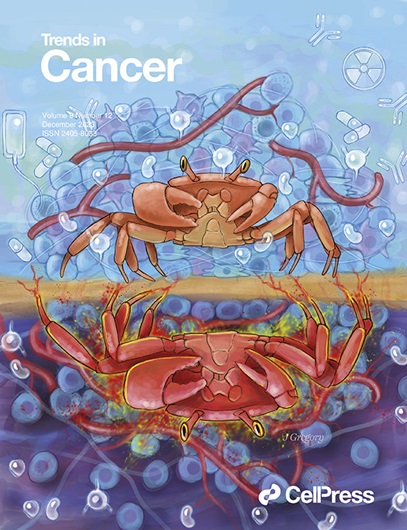CAR - T细胞在癌症中的持久性。
IF 17.5
1区 医学
Q1 ONCOLOGY
引用次数: 0
摘要
嵌合抗原受体T细胞(CAR - T)疗法是一种“活的药物”,通过基因工程改造T细胞来识别和杀死癌细胞。CAR - T靶向液体和实体肿瘤进展的主要障碍是这些细胞在体内的持久性差,这限制了治疗效果。在这篇综述中,我们总结了该领域目前对CAR - T持久性的理解,包括临床观察,患者相关性和多组学方法,以及新兴的细胞工程和制造策略。我们还提出了CAR - T持久性的概念框架,以指导临床数据的解释和更有效的CAR - T疗法的设计。本文章由计算机程序翻译,如有差异,请以英文原文为准。
CAR T cell persistence in cancer.
Chimeric antigen receptor T cell (CAR T) therapies are 'living drugs' in which T cells are genetically engineered to recognize and kill cancer cells. A major barrier to progress for CAR T targeting liquid and solid tumors is the poor persistence of these cells in vivo, which limits therapeutic efficacy. In this review, we summarize the field's current understanding of CAR T persistence, including clinical observations, patient correlatives and multiomics approaches, and emerging cell engineering and manufacturing strategies. We also propose a conceptual framework for CAR T persistence to guide interpretation of clinical data and the design of more potent and efficacious CAR T therapeutics.
求助全文
通过发布文献求助,成功后即可免费获取论文全文。
去求助
来源期刊

Trends in cancer
Medicine-Oncology
CiteScore
28.50
自引率
0.50%
发文量
138
期刊介绍:
Trends in Cancer, a part of the Trends review journals, delivers concise and engaging expert commentary on key research topics and cutting-edge advances in cancer discovery and medicine.
Trends in Cancer serves as a unique platform for multidisciplinary information, fostering discussion and education for scientists, clinicians, policy makers, and patients & advocates.Covering various aspects, it presents opportunities, challenges, and impacts of basic, translational, and clinical findings, industry R&D, technology, innovation, ethics, and cancer policy and funding in an authoritative yet reader-friendly format.
 求助内容:
求助内容: 应助结果提醒方式:
应助结果提醒方式:


